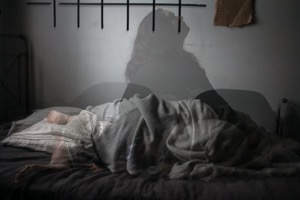
If your insomnia disability insurance claim was denied unfairly, do not be surprised. Above all, do not give up on your claim.
Insomnia is a common disorder causing the inability to fall asleep, stay asleep, or both. If you suffer from chronic or severe insomnia, you know how crippling this condition can be. Extreme sleep deprivation can make it impossible to do your job with any amount of precision or stability.
Insomnia sufferers often live with mental and physical stress and fatigue, memory problems, headaches, double or blurred vision, anxiety, and hallucinations. Many people dealing with the condition experience the sensation of seeing things is if they occur in slow motion.
When it comes to the insurance company paying disability benefits for insomnia, you have an uphill battle on your hands. From the insurance company’s point of view, insomnia is considered to be a self-reported or subjective condition.
Proving that you are totally disabled from insomnia is very difficult. The condition is rarely confirmed by standard, objective medical tests or procedures. Insurance carriers will often deny an insomnia disability insurance claim on this basis.
Anyone who is claiming long term disability benefits for insomnia will benefit from the services of a disability lawyer who understands the nature of the illness, its symptoms and the manner in which it is diagnosed.
Various Causes of Insomnia
The inability to sleep is commonly attributed to depression, anxiety and psychotic disorders. Hormonal imbalances, drug or substance abuse can also play a role.
Many people develop insomnia secondary to chronic pain or other sources of severe pain, sickness or discomfort.
Insomnia may also be due to a physical condition, such as a blockage of airflow affecting a person’s breathing during sleep.
Certain cases of insomnia may last only a few weeks. Chronic insomnia lasts much longer or indefinitely. Treatment for the condition may involve medications that induce sleep or act as sedatives. These medications can create disruptive conditions of their own, adding to a patient’s problems.
Depending on the case, your doctor may prescribe CPAP therapy or other breathing treatment for sleep apnea. Cognitive behavioral therapy may be ordered to identify possible hidden causes of chronic sleep problems.
Proving an Insomnia Disability Insurance Claim
In a claim for insomnia that is unassociated with another disabling impairment, it may be difficult to prove that the condition is so severe that you cannot work.
Insomnia is usually considered to be a symptom or side effect of an underlying condition. This means the diagnosis alone of “sleep disorder” or “insomnia” will likely not qualify for an award of disability insurance benefits.
Social Security Disability will likely be involved in your claim for long term disability. The Social Security Administration does not list insomnia as a disabling condition in their Listing of Impairments. Still you may have other conditions that accompany insomnia, and those conditions may listed.
Regardless of the cause of insomnia, you must show that you have followed all medical treatments and prove they have not relieved the insomnia.
When preparing an insomnia disability insurance claim or appeal, we ensure our clients are diagnosed and tested by a sleep specialist, in addition to and in conjunction with their primary treating physician.
Consulting with MDs who are sleep disorder specialists ensure that expert findings and opinions will support your disability claim or appeal and provide litigation support should the need arise.
Is Your Insomnia a Physical or Mental Condition?
One battle we confront in this type of claim is when the insurance company classifies the insomnia as a mental disability. Insurers will attempt this maneuver even when the insomnia is directly caused by physical disabilities.
The reason is this: If the insurer succeeds in labeling the disability a mental disability, any benefit payment will be greatly reduced. Most disability policies have a two year mental health limitation on benefits paid on mental health claims. Claims for most physical disabilities are paid until age 65.
How We Strengthen Your Insomnia Disability Insurance Claim
Even if you believe your claim should focus on insomnia as the primary impairment, we reinforce these claims by identifying and diagnosing other disabling conditions that are associated with insomnia in your case. These might include:
- Anxiety
- Asthma
- Bipolar Disorder
- Chronic Pain
- Depression
- Diabetes
- Fibromyalgia
- Heart Disease
- Lupus
- Lung Disease
- Lyme Disease
- Osteoarthritis
- Parkinson’s disease
- PTSD
- Rheumatoid arthritis
- Spinal Cord Disorders
- Irritable Bowel Syndrome
We Assess Your Functional Capacity
Our attorneys will also establish your incapacity to perform the substantial or material duties of your occupation by testing and rating your functional capacity. This assessment can be paramount to proving your insomnia does indeed impair your working and earning capacity.
Contact Us For Your Insomnia Disability Insurance Claim
If you have become disabled from chronic insomnia and need expert representation filing a new claim, or appealing a claim that was denied unfairly, we are here to help.
It makes no difference if you are under a disability insurance plan with your employer, or if you have purchased a policy directly on your own. Please contact Mehr Fairbanks Trial Lawyers without delay, because time constraints under your policy must be followed.
We will review your policy, your situation, and answer all your questions. There is no charge or obligation for this call at 800-249-3731.
 Kentucky ERISA Disability & Life Insurance Claim Lawyers
Kentucky ERISA Disability & Life Insurance Claim Lawyers

